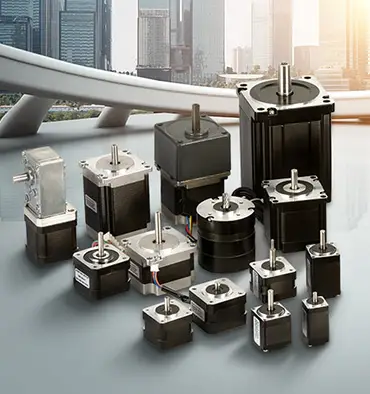How long do stepper motors last?
The question of how long stepper motors last is an important one, as it can have a significant impact on the performance and reliability of the motor. In this article, we will provide a detailed explanation of how long stepper motors typically last, and why the lifespan of a stepper motor can vary depending on a number of factors. We will also discuss the factors that can affect the lifespan of a stepper motor, and how to maximize the lifespan of a stepper motor.
What is a Stepper Motor?
A stepper motor is an electric motor that rotates in discrete steps, or increments, rather than continuously. This makes it ideal for applications where precise control of the motor's position is necessary, such as in printers, scanners, and other types of precision machinery.
Stepper motors are different from other types of motors in that they have a fixed number of steps per revolution. This means that the motor can only rotate in discrete steps, rather than continuously. For example, a stepper motor with 200 steps per revolution will rotate in 200 equal steps, each corresponding to a 1.8 degree increment of rotation.
How Long Do Stepper Motors Last?
Now that we have a basic understanding of how stepper motors work, we can answer the question of how long they typically last. The short answer is that the lifespan of a stepper motor can vary depending on a number of factors, including the type of stepper motor, the operating environment, and the load on the motor.
In general, stepper motors are designed to be durable and reliable, and can last for many years with proper care and maintenance. However, the exact lifespan of a stepper motor will depend on a number of factors, including:
- The type of stepper motor: Different types of stepper motors have different lifespans. For example, high-torque stepper motors are typically more durable and long-lasting than low-torque stepper motors, as they are designed to operate under higher loads and stress.
- The operating environment: The operating environment can have a significant impact on the lifespan of a stepper motor. Stepper motors that are used in extreme environments, such as high temperatures, harsh chemicals, or high humidity, may have a shorter lifespan than those that are used in more benign environments.
- The load on the motor: The load on the motor is another important factor that can affect its lifespan. Stepper motors that are subjected to high loads or heavy use may have a shorter lifespan than those that are used under lighter loads or less frequently.
Advantages of Using Stepper Motors
Despite these challenges, there are some significant advantages to using stepper motors. Some of the main advantages of using stepper motors include:
- Precision: Stepper motors are able to rotate in discrete steps, which allows them to provide precise and accurate control over their movement. This is important in applications where high levels of precision are required, such as in robotics, automation, and other precision systems.
- Flexibility: Stepper motors can be programmed to execute complex motion sequences, which allows them to be used in a wide range of applications. This makes them highly versatile and adaptable to different types of motion control tasks.


Leave a Reply